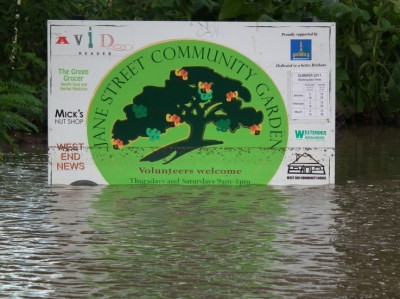Actually no, don’t bother. It would take too long.
But as parts of Queensland hit the road to recovery, it is worth thinking about what makes a community resilient to extreme events like floods and cyclones.
That’s especially important given climate scientists predict we’ll either be getting more events such as these or the ones we do get, will be more severe.
There’s been much talk of how these events in themselves are bringing people closer together and this might be the case in the short term.
The story as portrayed on the television news or in newspapers has been how people who don’t usually talk to each other (let alone help each other out) have been mucking in together.
But relying on disasters to build cohesive communities would be an odd policy indeed. Once the working-bees are over and the media pack has moved on, will memories of sifting through sodden muddied possessions, repairing roofs or attending funerals be enough to keep people together?
A few days after the floods had subsided, I went into the suburb of West End to see a community garden which, as you can see from the picture, had looked very different a week earlier.
I heard about how volunteers from the suburb and from other parts of the city had streamed in to help repair vegetable beds, reconstruct worm farms and generally clean up the mess. New seeds and seedlings are already going in.
In a story for bmag, social researchers tell me that community gardens aren’t just there to provide food.
They act as social and community hubs that build friendships which are there before cyclones and floods, come together to recover from cyclones and floods and are still there afterwards.
If you did want to go off and define resilience, maybe community gardens would provide a good case study.

Ok, I’ll have a crack, I thought this was a nice definition:
“Resilience is, in a nutshell, the ability of a system, whether an individual, an economy, a town or a city, to withstand shock from the outside. Resilience is about building the ability to adapt to shock, to flex and modify, rather than crumble. You can think of it as being like building surge protectors into an electrical system.”
http://www.transitiontowntotnes.org/content/what-resilience
Megan, I think you identify a key aspect of the term when you mention protection. It seems to me that resilience is primarily concerned with prevention; maintaining a sense of unity to avoid future problems. Community gardens provide a great example of this, being cooperatives set up voluntarily to ensure the maintenance of relations and supply the community in a sustainable manner. In the event of a disaster, the viability of a community garden would surely be far greater than that of a private one. It is this strength in unity that defines resilience for me.